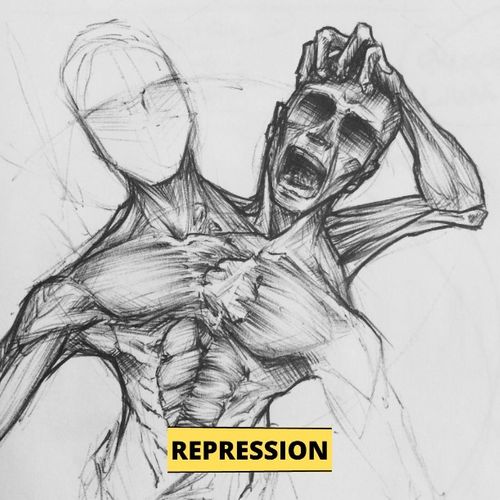Repressing Our Problems: Why Do We Do It?
Jan 28, 2023 · 2 mins read
0
Share

One of the ways in which we deal with our problems is “repression”.
It’s a fancy way of saying ‘out of sight out of mind’ but more on the level of your experience, feelings and emotions. What does this mean?
Save
Share
When something happens in the conscious experience that you wish to avoid, you take it and put it in the unconscious part of your mind, mostly by force.
It's a lot like taking the cookie jar and putting it behind all the other jars so that you cannot see it and not deal with it.
Save
Share
On a mental level, this is usually done to avoid the negative emotions that are associated with trauma or an unpleasant experience.
We don’t know how to deal with the intensity of the experience. We’re afraid of that which is ambiguous.
Save
Share
Repression on the level of society happens in the form of taboos or shaming, say around gender or mental health.
By not talking about it (or making it difficult to talk about it) you remove the discomfort or awkwardness associated with it.
Save
Share
On the level of our bodies, repression happens when we try avoiding or repressing the symptoms instead of investigating what is the deeper problem.
For example: treating recurring acne with skin products instead of checking into hormonal issues, thyroid or inflammation.
Save
Share
In psychoanalysis, repression is understood as a defence mechanism.
It ensures that what is unacceptable to the conscious mind, (and would arouse anxiety if recalled), is prevented from entering into it.
Save
Share
We repress unpleasant memories, forbidden desires or unacceptable/taboo behaviour because it interferes with what is termed “normal behaviour”, either by ourselves or by society.
A classic example is creating a false self.
Save
Share
A false self is devoid of your authentic desires and values. You put up this mask and become what your parents, culture or YOU want you to become.
To do this you have to repress anger, resentment or even ambition and one’s sexual preferences.
Save
Share
Both Freud and Jung said that a “civilised” society expects certain behaviour leading to internalizing ideas of how we should be.
But acknowledgment and integration of the repressed parts of self in a healthy way is a step towards wholeness.
Save
Share
That’s repression, what about self-esteem? Learn the two core components:
Follow me to receive my new Memos on psychology and philosophy:
Save
Share
0